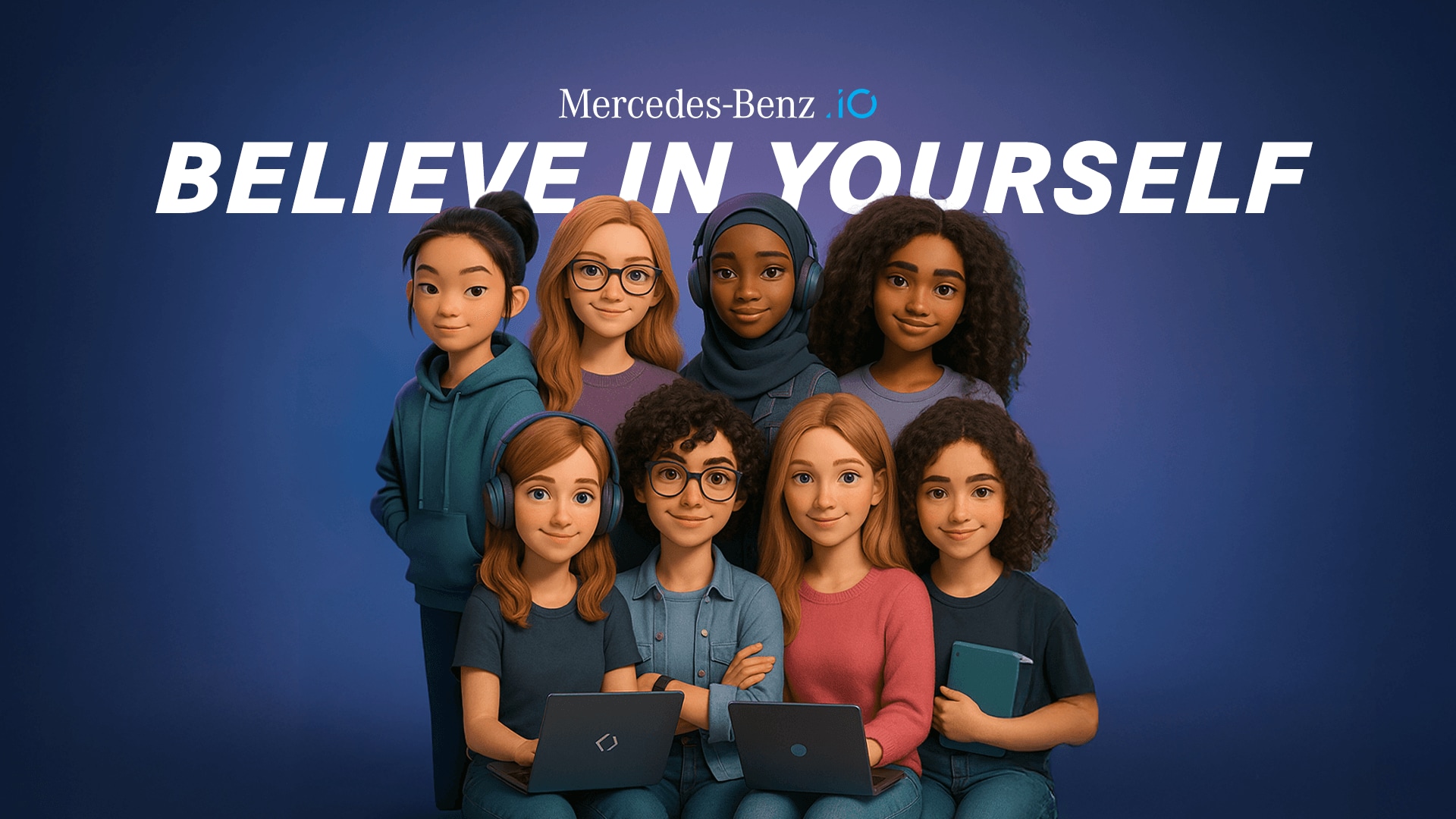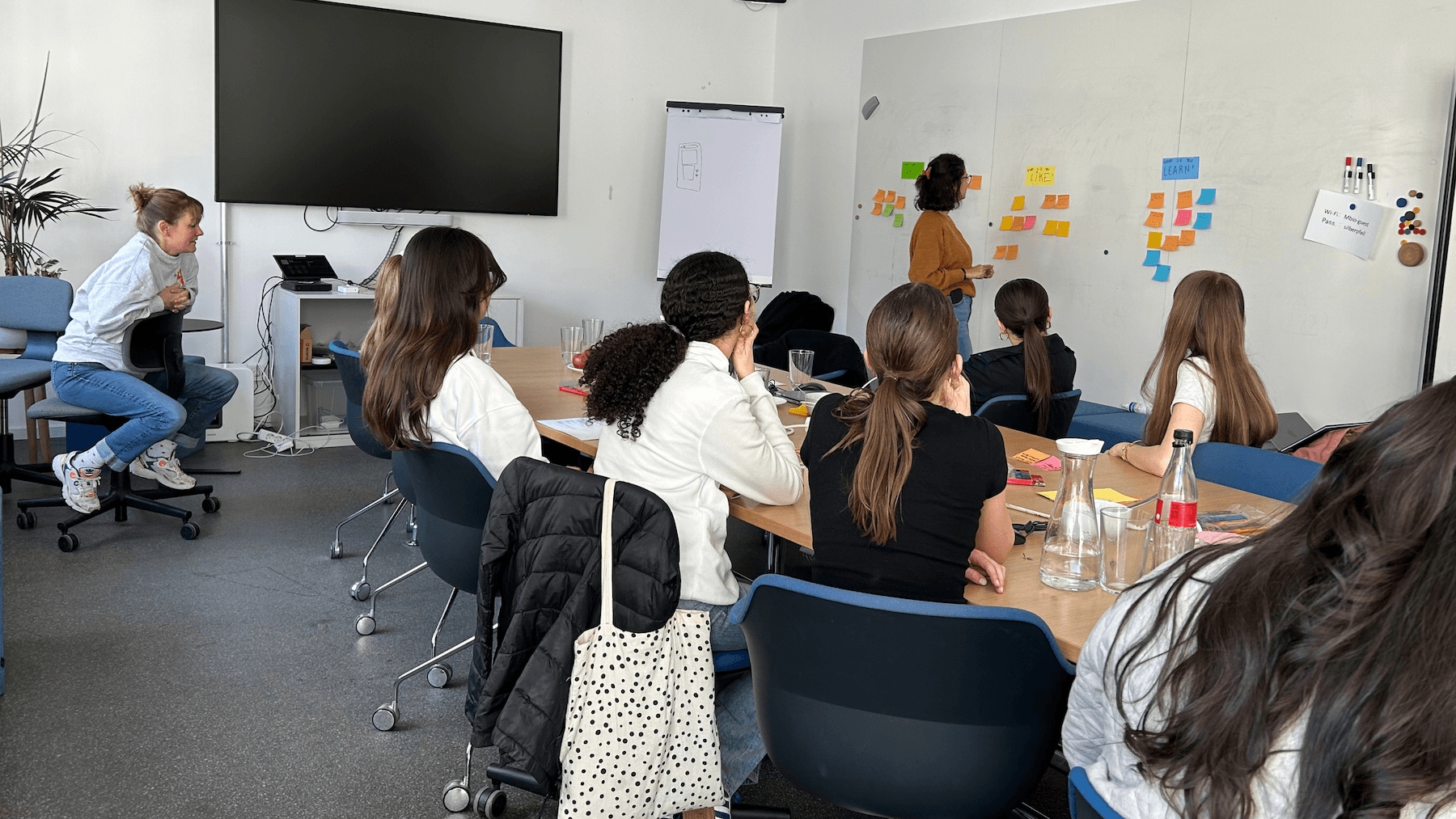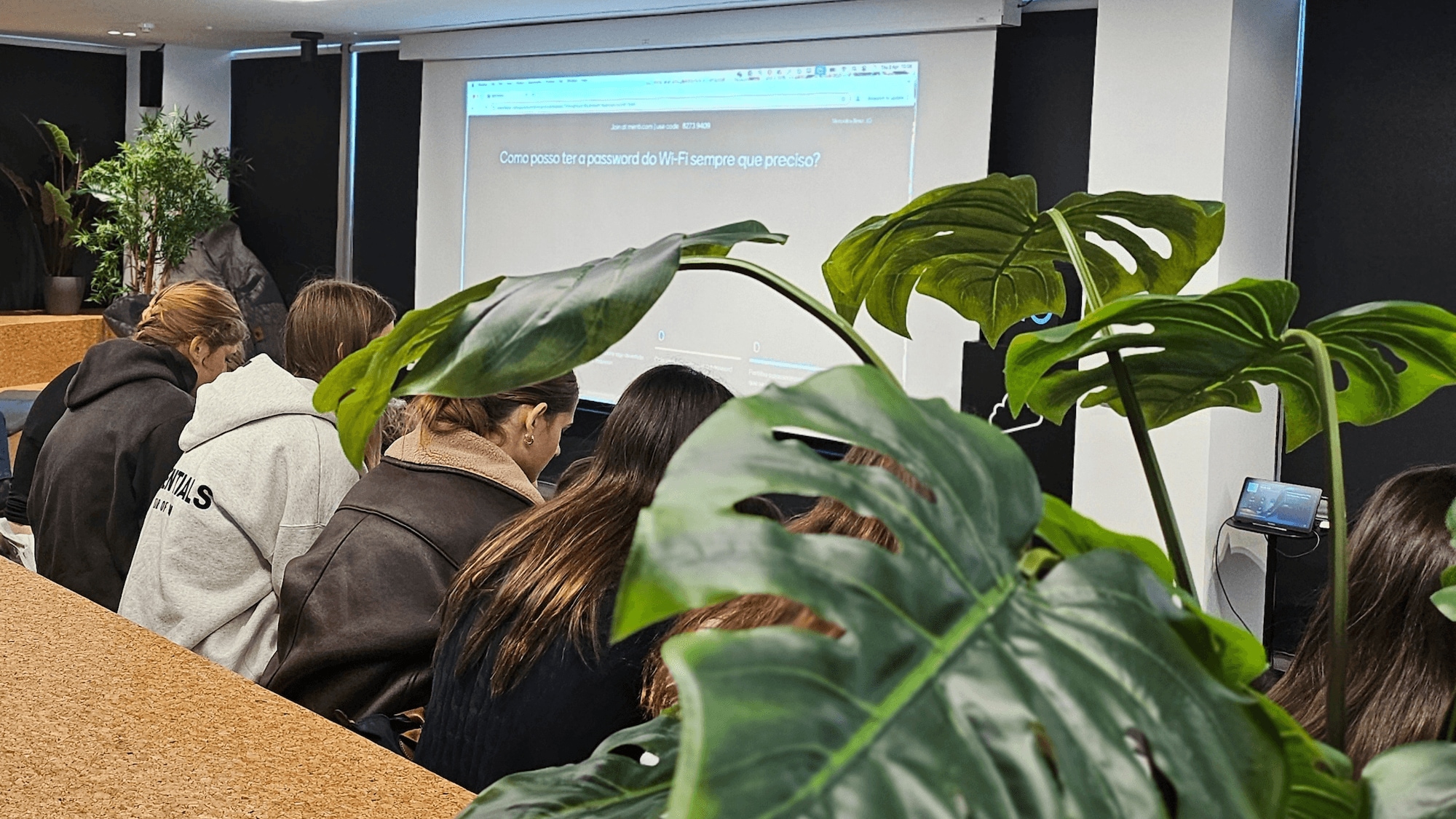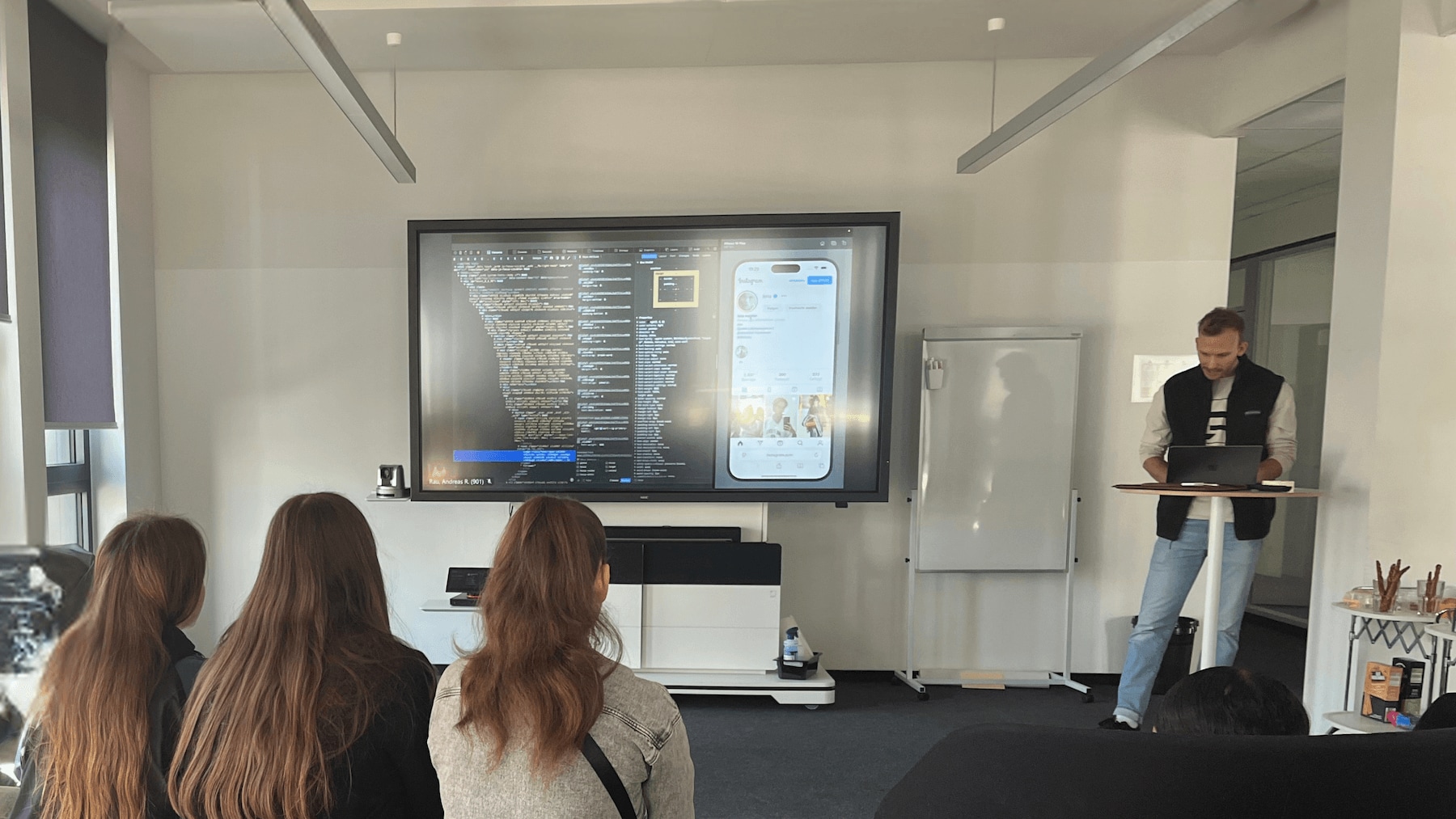
More Than a Day: Inspiring the Next Generation of Women in Tech
Every year in Germany, and increasingly across Europe, Girls’ Day opens doors. Tangible ones, into classrooms, offices, or workshops. But more powerfully, into possibility — where girls can see themselves building what's next.
Girls’ Day is a initiative that encourages young girls to explore careers in fields where women are still underrepresented — including technology, engineering, and IT. And every year, thousands of companies and institutions take part, helping create new paths forward for the next generation.
At Mercedes-Benz.io, Girls’ Day isn’t just a moment — it’s a reflection of what we stand for. Because we don’t just want to build great digital products. We want to contribute to a tech industry where more people can actively shape the present and future. And that starts with visibility, inclusion, and early inspiration.
This year, three of our four locations joined the celebration partnering with different schools: Berlin welcomed 20 participants, Stuttgart hosted 16 girls and Lisbon opened its doors to 30 students from schools across the city.
The result was a powerful cross-location initiative where girls had their first contact with frontend development, design thinking, product strategy, and agile collaboration — all through real conversations with the people who do this work every day.
We asked four of the MB.ioneers who hosted these sessions to reflect on what this day meant — for the girls, for them, and for the future of tech.
Contents
Why Girls’ Day matters — and what’s at stake
According to Eurostat, women represent only 19% of ICT specialists in the EU — and the numbers are improving far too slowly. In Germany, just one in six tech jobs (Eurostat) is held by a woman. In Portugal, the situation is slightly better with women making up around 26% of the tech workforce (PORDATA), but the gaps remain, particularly in leadership roles, backend and infrastructure positions, and early access to technical education.
Girls’ Day exists to interrupt that pattern.
It provides early exposure, hands-on experience, and, just as importantly, relatable role models who show that tech isn’t a boy's club. It’s a space for thinkers, builders, problem-solvers, and creatives.
“When I was growing up,” said Joanna Tokarz-Haertig, “a woman in tech was the exception, not the norm. What we’re doing here is normalising it. Making it feel accessible. Real.”
Her colleague Susanne Kopp agrees. “We need more role models across all kinds of roles — not just developers, but product people, agile coaches, AI experts, team leads. Girls should see the whole spectrum, and know there’s a place for them.”
Creating confidence, not just awareness
Awareness is a start — but Girls’ Day is designed to go further. It gives young girls a chance to try, to ask, to explore — and in doing so, to start reshaping what they believe they’re capable of.
“It provides a huge boost to their confidence,” said Eduarda Silva, who led the frontend workshop in Lisbon. “Some of them arrived unsure, saying ‘I don’t know anything about code.’ But when they left, they had built something themselves. You could see the shift in how they spoke. It left a mark.”
The biggest impact isn’t always visible in the moment. Sometimes it’s subtle — like a girl who discovers that programming isn’t just lines of code, but a way to bring ideas to life.
“Most of them had never been in a tech office before,” said Joanna. “So we made sure they could ask any question, no matter how simple. One of them said, ‘I thought this was all just typing at a black screen… but I actually like this.’ That was the moment for me.”

Making tech tangible — through people and practice
So, how do you turn curiosity into connection?
You let them experience it for themselves. That’s what our hands-on workshops aimed to do.
In the UX/UI session, Inês Marques introduced the girls to design thinking, prototyping, and user flows — and invited them to design their own app idea.
“It wasn’t just about showing them tools,” she explained. “It was about showing them that design is about people. It’s about solving problems and creating experiences that make sense.”
She was impressed by how quickly they engaged. “They asked smart questions. They gave each other feedback. One of them suggested a feature that none of us had thought of — and that’s the point. They’re not too young to have good ideas.”
In the frontend session, the girls built a basic webpage and got a crash course in how frontend works. Eduarda shared that while some were intimidated at first, their mindset quickly changed.
Once they realised they could understand the logic, they felt empowered. That’s the power of doing over watching.

Inclusion isn't optional — it's strategic
At Mercedes-Benz.io, we talk a lot about building inclusive products — but we know that can’t happen without inclusive teams.
“We always say diverse teams build better products,” said Susanne, “but this day is a reminder of why. Different perspectives lead to better solutions. And if we want ethical, relevant, user-centred technology, we need to involve more people — starting with young women.”
She added that Girls’ Day isn’t just for those who already show interest in tech. “Some of the quietest girls became the most engaged when they felt safe to speak. We need to reach everyone — not just the loudest.”
This aligns with our mission to build tech for real people. That includes how we recruit, how we communicate, and how we ultimately work together and develop digital products. It’s not a CSR checkbox — it’s how we do better work.

Our culture, in action
Beyond skill-building or awareness, Girls’ Day also reflects something deeper about who we are as a company.
“It’s about empathy, openness, and creating space for others,” said Inês. “And that starts internally, with how we support each other.”
The team made sure every workshop felt inclusive, welcoming, and safe. From setting up the spaces to preparing materials to answering “silly” questions — the experience reflected Mercedes-Benz.io's culture in action.
One of the girls even suggested doing a similar event for younger students — proof that impact travels fast when you feel included.
Building for the future — by being visible today
For Joanna, this day ties back to the Mercedes-Benz campaign line “Be one of many.”
“It’s about normalising women in tech,” she said. “We’re not trying to be exceptions. We want to show what it looks like to belong.”
And it’s also a reminder of what representation does: it plants a seed. Sometimes that seed becomes interest, or motivation, or an actual career. But it always starts with seeing someone who opens the door — and says, “Come in. There’s space for you here.”
Girls’ Day may be one day. But what it creates — confidence, clarity, curiosity — stays long after the doors close.
And that’s why we’ll keep doing it.
Related articles

Bertram Hass
Node Scaling Optimization at Scale: Cut your Kubernetes cluster costs while assuring zero downtime
At Mercedes‑Benz.io, the platform organisation operates a large number of Kubernetes clusters that power dozens of digital products across the company. As a central platform team, we own the underlying infrastructure and its operational reliability, while product teams own their applications and deployment lifecycles.
Feb 3, 2026

Ayoub El-Moussaoui
Scaling DevOps with Confidence: Key Takeaways from DevOpsDays Warsaw 2025
What does it take to build platforms that are fast, secure, and resilient at scale? At DevOpsDays Warsaw 2025, the answer was clear: standardisation, automation, and AI-driven support are no longer "nice-to-haves." They're the new baseline.
Jan 30, 2026

David Afonso, Pedro Lopes
Creativity in Collision: Lessons from OFFF Sevilla 2025 on Design, Storytelling, and Collaboration
What happens when you step out of your day-to-day tools and into a three-day mash-up of motion, typography, immersive art, and creative tech? For MB.ioneers Pedro Lopes and David Afonso, OFFF has become a creative tradition. After attending OFFF Barcelona in 2024, they came back for more, this time in Sevilla.
Jan 27, 2026